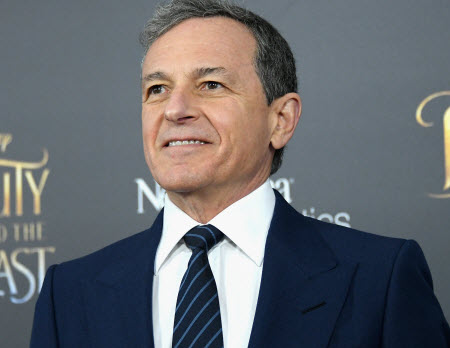Iger: ESPN’s Eyes Wide Open
The smarter way to stay on top of the multichannel video marketplace. Sign up below.
You are now subscribed
Your newsletter sign-up was successful

Walt Disney Co. chairman and CEO Bob Iger said the content giant’s ESPN sports channels saw viewership trends changing years ago and has made the necessary adjustments, focusing its energies on mobile apps and changing shows and talent to drive deeper engagement.
ESPN has taken it on the chin as its subscribership has dwindled, a fact Iger did not ignore on the company’s fiscal second quarter conference call. ESPN’s subscriber losses – about 1 million in the past two months and about 7 million viewers between 2011 and 2015, according to Nielsen data – have largely been due to cord-cutters, cord-nevers and customers that have downgraded their pay TV packages to offerings that don’t include the sports channels.
“It’s been a blend,” he said. “And it has been fairly steady.”
ESPN has taken up some of the slack by striking deals with over-the-top providers like Sling TV, DirecTV Now and Hulu, but it hasn’t entirely made up the difference, he said, adding that it has forced the company to make improvements.
But Iger said Disney will continue to work with OTT and new platforms because they are more user-friendly, mobile-friendly and have a better user interfaces.
“The combination of those as well as the pricing we believe makes them more attractive to people in lower economic brackets as well as a new generation or a younger generation of consumers,” Iger said. “And that is very, very important to us.”
While ESPN has been criticized for contributing to the high costs of sports by paying huge sums for sports rights – Iger said recent moves have proven that rights to live games are more valuable than ever. Amazon recently paid $50 million for streaming rights to 10 NFL Thursday Night Football games for one year.
The smarter way to stay on top of the multichannel video marketplace. Sign up below.
Iger said ESPN needs to be managed more efficiently, but that the sports channels will continue to aggressively bid for sports rights.
“We will continue to be aggressive at buying live sports rights, which have not gotten cheaper, we understand, but they have gotten more valuable,” Iger said, pointing to the recent Facebook and Amazon deals.”…live sports is important to new digital platforms, and live sports is important to anyone who is trying to reach consumers in the media business.”
Iger said the ESPN and Disney has been extremely transparent in letting Wall Street and investors know about the drop in subscribers and its plans to right the ship. He pointed to two years ago, when Disney first revealed the sports channel was losing customers as proof of that transparency.
“We wanted to signal that we had our eyes wide open about what was going on and we fully intended to address what we were seeing and what we've continued to see,” Iger said. It enabled us to take a number of steps to deal with the issue in a way that long-term will serve this company very well.”
Among those steps have been improvements to ESPN’s mobile apps, negotiating new deals with new distributors, buying digital pioneer BAMTech and getting ready to launch its own direct-to-consumer offering by the end of this year.
Iger said there are no current plans to take the entire ESPN lineup direct-to-consumer, but added over time, that is probably where the pay TV industry is headed. He purposely did not offer a time frame for that switch, only saying that it is years in the future.
Iger also chafed at reports that his decision to extend his retirement – he was originally scheduled to step down as chairman and CEO in 2014, but has pushed that date to the end of 2018 – as a sign that the transition process was in trouble. He said he extended his tenure at Disney – he was named CEO in 2005 – because he still felt he had a few more things to accomplish. He also said he hoped that the extra year would make the eventual transition smoother, and possibly give internal candidates a better shot at the top job.
